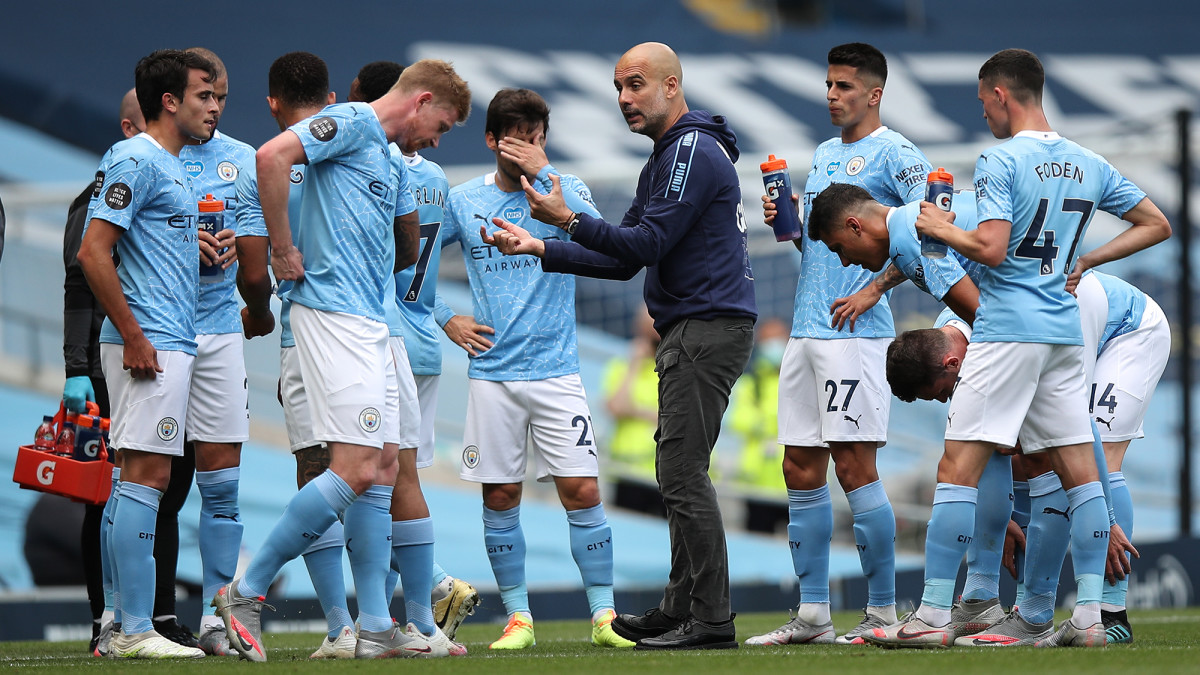Transfer Priorities: Manchester City and Its Specific Needs to Correct a Glaring Weakness
This is the fifth in a series assessing Premier League teams and their transfer priorities for the summer. Read more on Arsenal and its progression under Mikel Arteta, how Tottenham must rebuild on a budget under Jose Mourinho, why Chelsea has the look of a team going all in and where Manchester United needs to develop significant depth.
It’s been a strange season for Manchester City. On one hand, it's been one of significant disappointment domestically. On the other, it could still end in Champions League glory, which has, after all, been the target from the start–whatever its fans may think of UEFA.
There’s a sense in which off-field events, with Man City successfully appealing it European competition ban, have been more important than what happened on the pitch. Even as that rumbles on, with new leaked emails in Der Spiegel apparently casting doubt over some of the evidence provided at the Court of Arbitration for Sport, that shouldn’t be allowed to disguise the questions that have arisen on the pitch.
Man City, at times, has been brilliant this season. It scored four or more goals in a game on 11 occasions in the league and totaled 102 goals, 17 more than the champion Liverpool. When in possession, it could be just as mesmerizing as ever. But as soon as possession was lost, it was a different story.

The defeat to Chelsea that confirmed Liverpool’s title was a classic case study. For 20 minutes or so, City dominated the ball. It seemed like only a matter of time before it took the lead. But then possession was lost following a free kick, Benjamin Mendy got in Ilkay Gundogan’s way, and the fullback compounded his error with a clumsy lunge that Christian Pulisic easily avoided before scoring. City got back into it and equalized shortly after halftime, but every time Chelsea played the ball in behind City's defensive line, it caused problems, eventually resulting in the penalty from which Willian scored the winner.
City has been desperately vulnerable to the counterattack all season. Nine games is a huge number of defeats for a title contender. And almost every defeat has come in the same way–Wolves twice, Manchester United twice, Norwich, Liverpool, Tottenham, Southampton, Chelsea–all have hit City on the break. Personnel has clearly been an issue, but for the first time since he started out in management, doubts have begun to surface about Pep Guardiola’s philosophy.
Of course a team that presses hard and plays with a high line renders itself susceptible to the counter, but why is Liverpool rarely caught out in the same way? Why has this flaw been such a constant in high-profile Guardiola defeats over the years? And why has it become so much more of an issue this season? Is it simply that in placing such a premium on possession, Guardiola ends up selecting defenders whose strengths lie more in keeping the ball than regaining it? Or is there something more fundamental? Very few managerial careers endure at the very highest level for more than a decade; Guardiola is still only 49, but could it be that the mechanics of pressing have moved on and the shock his methods one induced have lost some of their impact? Perhaps another summer of spending can outfit him with the personnel required to disprove that hypothesis.
PRIORITY AREAS
Center back
Even before Vincent Kompany’s departure, central defense was an area of concern, given the indifferent form of John Stones and Nicolas Otamendi. A deal has been agreed to bring in Nathan Ake from Bournemouth, but as a left-footed center back, he seems more likely to be providing cover for Aymeric Laporte rather than partnering with him (Chelsea, oddly given its issues in the heart of defense, did not take up a buyback option that is believed to have been in his contract). With Stones seemingly on his way out–West Ham is reportedly interested–the probability is a right-footed center back will also be arriving.
Kalidou Koulibaly from Napoli is an obvious option who has been linked with the club repeatedly in the past, while there has been talk of Slovakia international Milan Skriniar arriving from Inter, perhaps in a swap deal for either Sergio Aguero or Gabriel Jesus. Player exchanges like that very rarely happen in England, but even the fact it is reportedly being discussed perhaps suggests some of the other reshaping of his squad that Guardiola may undertake.
Left wing
With Leroy Sane gone to Bayern, there is probably a need for somebody else to operate on the left, given Riyad Mahrez, Bernardo Silva and Phil Foden would all naturally favor the right. A fee has been agreed to bring in 20-year-old Ferran Torres from Valencia, but he, too, has been used largely as a right-sided player in his career so far. It may be that Guardiola is happy with Raheem Sterling as a first choice on the left with the others occasionally shifting across as required, but it wouldn’t be a huge surprise were somebody else left-sided to be brought in.
Holding midfield
Fernandinho is 35 and has only one year left on his contract. He spent most of last season covering in defense, which exposed Rodri in midfield perhaps more than was ideal. The 24-year-old was in no sense a disaster, but neither did he entirely convince– and besides, City will need cover for when Fernandinho leaves. AC Milan’s 22-year-old Algeria international, Ismael Bennacer, is understood to be a player who has caught Guardiola's eye.
